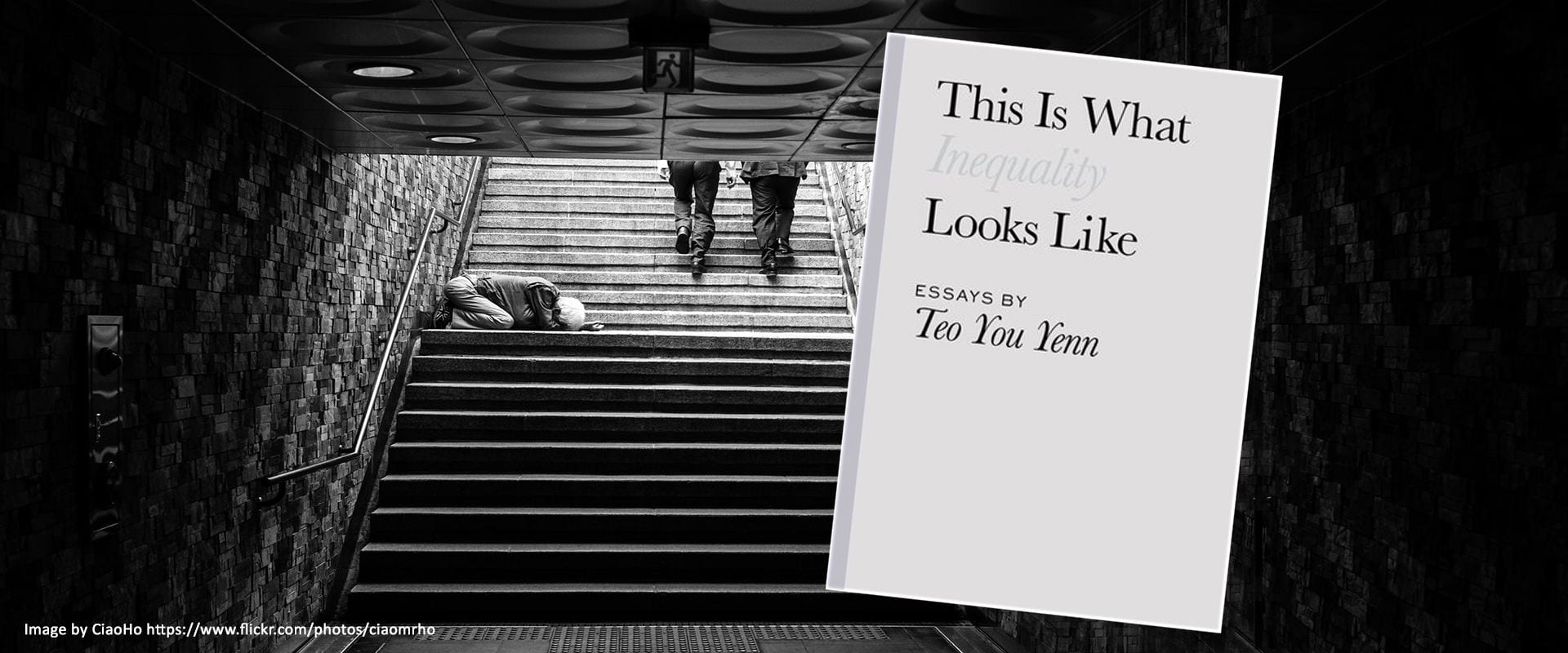This Is What Inequality Looks Like is written by Prof Teo You Yenn, Head of Sociology at Nanyang Technological University. It is one of the best-selling local books, with more than 20,000 copies sold in 2018.
The book is an ethnographic study of poverty and inequality in Singapore, grounded in sociological sensitivity and very much shaped by three years of intimate interactions with Singapore’s poor during the author’s academic fieldwork.
Across twelve stylistically varied chapters, the author reveals the habits and desires not only of the working and under classes, but also the stakeholders that compose what might be called the social services class — namely, philanthropists, social workers, concerned citizens, and the elite class. It also disrupts the image of Singapore as merely a place of prosperity and progress and points instead to the day-to-day experiences of Singapore’s disadvantaged residents, the challenges they face, and the embedded presumptions about them that undermine their access to assistance with dignity. With sensitivity and precision, the author exposes the underbelly of Singapore and records the searing experiences of poverty – of those whose voices are seldom heard and presence barely glimpsed.
The author highlights that meritocracy works on misdirection, by defining the system as something that rewards a person for their hard work and directing the discourse from there. She encourages a careful consideration of how policies that have benefited others could be systemically working against the disadvantaged.
The book sparked debate on poverty and inequality in Singapore in Parliament, in letters to news editors, and social media. In Parliament on 11 July 2018, Minister for Education Ong Ye Kung enjoined Singaporeans not to “lose faith” in meritocracy, even as he acknowledged that the very term risked becoming a “dirty word”.
This is a book about how seeing poverty entails confronting inequality. It is about how acknowledging poverty and inequality leads to uncomfortable revelations about our society and ourselves. And it is about how once we see, we cannot, must not, unsee. ~ Teo You Yenn

